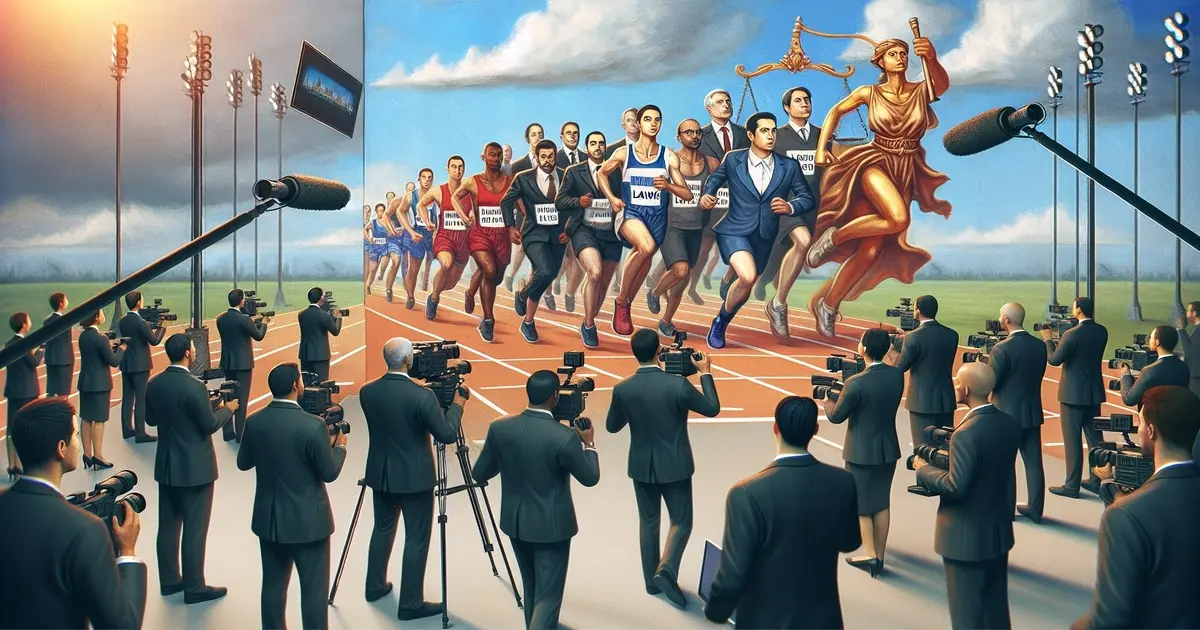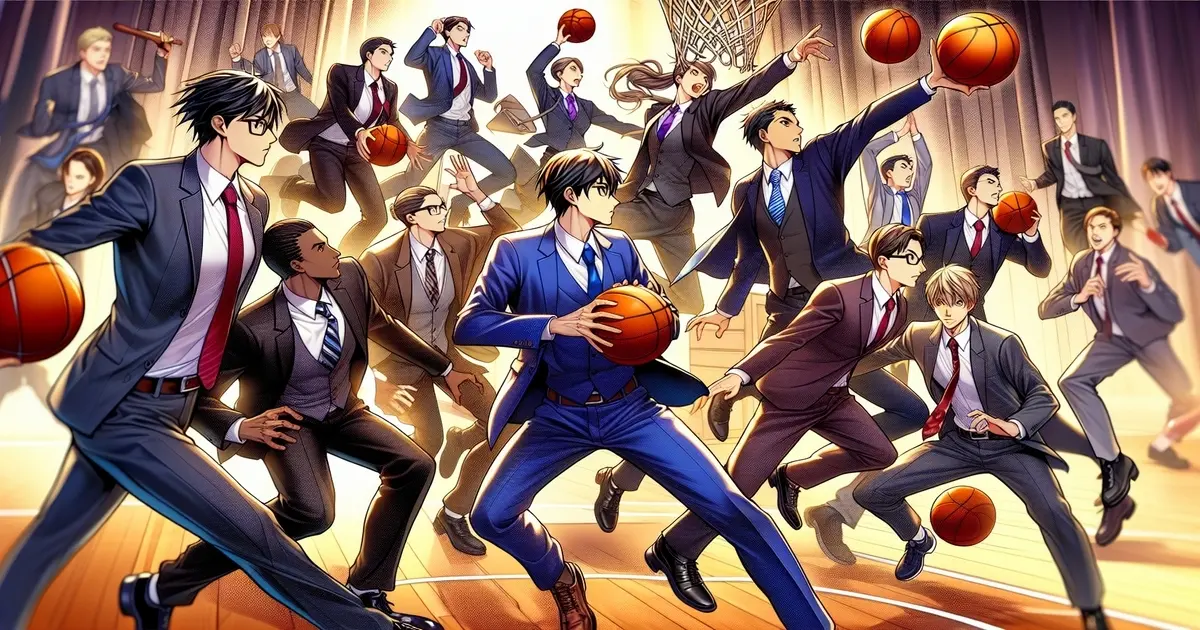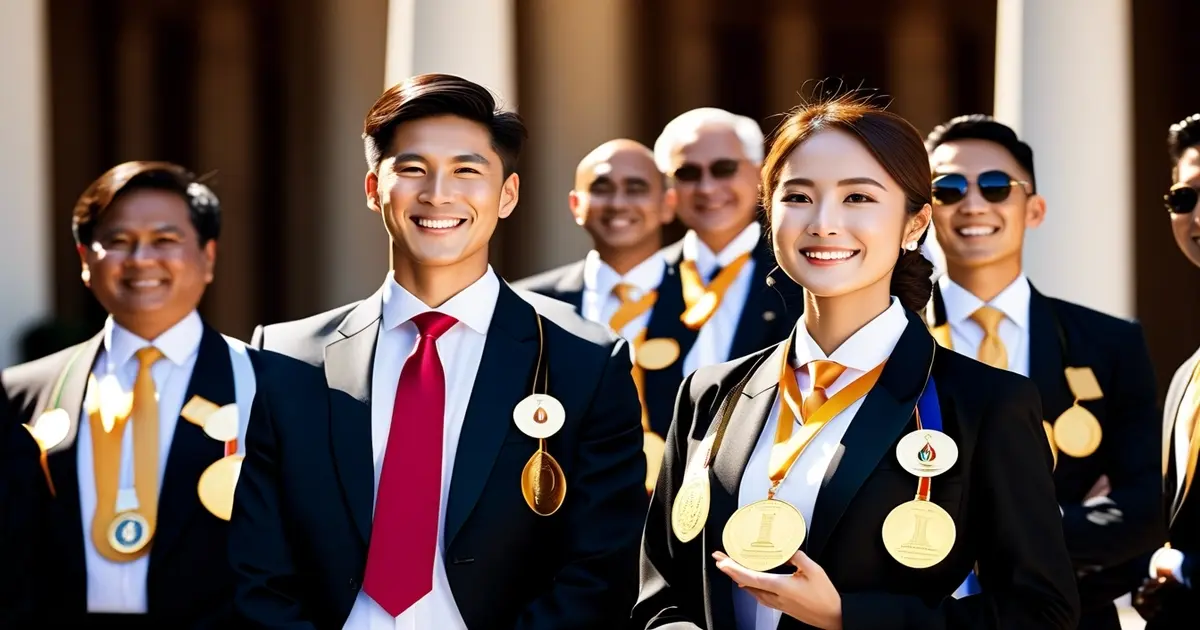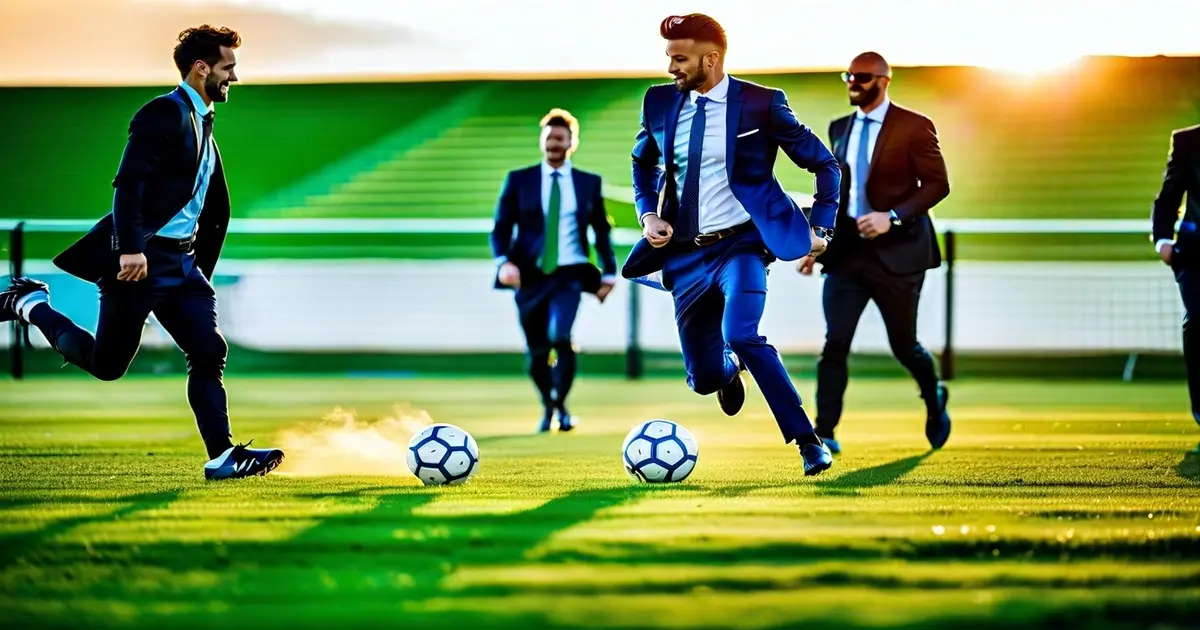Sports Law: Your Ultimate Guide to Navigating the Field
Sports law is like diving into the playbook of the sports world, where the rules of the game extend far beyond the field. This specialized legal field, known as sports law or sports law, tackles everything from player contracts and doping disputes to intellectual property and broadcasting rights, encompassing sports litigation, with sports lawyers deeply involved in sports law work.
With origins tracing back to the formation of professional sports leagues, sports law has evolved alongside the global sports industry, becoming crucial to ensuring fairness, integrity, and justice in sports. Whether you're an athlete, coach, sports organization, attorney, or a fan curious about the legalities that shape the games we love, understanding sports law offers valuable insights into the complex interplay between law and sport. This blog post serves as a disclaimer for those insights.
Table Of Contents
Key Takeaways
- Sports law is a specialized area that covers legal issues and disputes in the sports industry, including contracts, injuries, trademarks, criminal matters, and employment issues.
- As discussed in this blog post, understanding the critical aspects of sports law is crucial for athletes, coaches, sports organizations, and fans to navigate the complex legal landscape of the sports world effectively.
- Contract law in sports ensures that agreements between players, teams, and sponsors are legally binding and enforceable, highlighting the importance of clear terms and conditions.
- Injury law plays a significant role in protecting athletes' rights and well-being, emphasizing the need for safety measures and fair compensation in case of sports-related injuries.
- Trademark law is vital for safeguarding the brands and intellectual property of sports teams and organizations, underscoring the value of brand management in athletics.
- The evolution of sports law reflects changes in society's views on sportsmanship, fairness, and professionalism, indicating its dynamic nature and ongoing impact on amateur and professional sports.
Defining Sports Law
Legal Foundations
Sports law is a dynamic field that intersects with various legal disciplines. It addresses issues beyond the internal rules of sports organizations, touching on labor, contract, competition, and tort law in a blog post. This broad scope ensures that athletes' rights are protected, from contract negotiations to personal injury claims involving professional sports contracts and sports disputes, with a sports attorney or lawyer's assistance.
This area, often explored by sports attorneys in blog posts, also encompasses specific legal cases and acts related to contract negotiations sports lawyers focus on, such as the landmark Bosman ruling, significantly impacting player transfers within European football. With 51 pages dedicated to its study, sports law is expansive yet continuously evolves to address new challenges in the sporting world.
Athlete Protection
At its core, sports law aims to safeguard athletes at all levels. For professional players, a sports lawyer mediates disputes and ensures fair labor practices, as detailed in a blog post. Recreational athletes benefit from standards that promote safety and fair play. The introduction of regulations for safety equipment and coach training standards exemplifies how the law protects younger athletes, emphasizing their well-being over competitive success.
Defamation and privacy rights are critical components of sports law. They protect athletes against undue harm to their reputation and unauthorized image use, which is crucial in today's digital age, where media scrutiny is intense.
Doping Regulations
Doping in sports represents one of the most contentious areas within sports law. It not only covers the enforcement of anti-doping policies but also involves defending athletes accused of doping offenses. As part of its comprehensive approach, sports law ensures that testing procedures are fair and that athletes have access to justice.
Emerging Trends
The rise of player agents and increased media attention has propelled sports law into prominence. These factors have introduced complex negotiations and contracts requiring specialized legal knowledge. Moreover, sports law in the United States illustrates the field's complexity as it overlaps with several legal areas to address unique challenges faced by athletes and sporting organizations.
Despite its established foundations, sports law is marked by continuous growth. New issues such as e-sports regulation and intellectual property rights in sports branding underscore the evolving nature of this legal discipline. However, the need for additional citations highlights that while much is known about sports law, much information remains to be explored and understood.

Critical Aspects of Sports Law
Contract Law
Contract law is a cornerstone in sports, ensuring fair terms and conditions for all parties involved. This facet of sports law is crucial for athletes and teams, as it governs their agreements. Experienced sports attorneys play a pivotal role here, drafting and negotiating contracts that protect the interests of their clients. Whether it's an endorsement deal or a player's contract, the precision in these legal documents can significantly impact an athlete's career and the operation of sports organizations.
A well-negotiated contract can mean security and prosperity for athletes, while for teams, it ensures that their investments are safeguarded. Contract law's dynamics often reflect the balance of power in sports, making experienced legal counsel indispensable.
Personal Injury Law
Personal injury law in sports addresses the risks associated with physical activity, aiming to create a safe environment for participants and spectators. This area of sports law covers everything from minor injuries to severe accidents, providing mechanisms for compensation and recovery. Administrative law sports lawyers often set standards and regulations that enhance safety protocols within sports venues and during events.
The significance of personal injury law extends beyond just compensation; it underscores the commitment of sports entities to uphold the well-being of everyone involved. Injuries can derail careers and cause significant financial strain, making this aspect of sports law vital for the resilience and sustainability of sports professions.
Trademark Law
Trademark law supports sports teams' and organizations' branding and merchandising efforts. It allows entities to protect logos, slogans, and other brand identifiers from unauthorized use, safeguarding their identity and commercial value. Through trademark registration and enforcement, teams can ensure their brand remains distinctive and valuable.
This protection benefits the teams and contributes to a more vibrant fan experience. Merchandise allows fans to express their loyalty while generating significant revenue for teams. The expertise of practicing sports law professionals is crucial in navigating the complexities of trademark law to maximize brand potential.
Contract Law in Sports
Drafting Contracts
Drafting sports contracts requires meticulous attention to detail. Lawyers work closely with athletes and coaches to ensure these agreements reflect their interests and protect their rights. This process involves outlining terms related to salaries, bonuses, and other forms of compensation. It also includes provisions for injury, insurance, and endorsements.
The negotiation phase is crucial. Here, sports lawyers leverage their expertise to secure favorable client terms. They navigate through complex legal jargon, ensuring clarity and mutual understanding between parties.
Breach Implications
Breaches in sports contracts can have significant repercussions. This might mean fines, suspension, or even contract termination for athletes. Coaches could face dismissal without compensation or damage to their professional reputation.
Legal remedies are available to address breaches. These often include arbitration or litigation, aiming to resolve disputes fairly and efficiently. The goal is always to protect the client's interests and ensure justice is served.
Lawyer Roles
Sports lawyers play a pivotal role as agents in the client relationship. They negotiate contracts and offer guidance on career moves and financial planning. Their objective is to maximize their clients' fina financial and career potential.
These professionals also provide counsel on endorsement deals and personal branding opportunities. They understand the sports industry's dynamics and use this knowledge to benefit their clients.
Injury Law in Athletic Activities
Duty of Care
Sporting venues are significantly responsible for ensuring the safety of fans and participants. This duty extends to maintaining secure facilities and providing adequate emergency services.
Venues must implement rigorous safety protocols to prevent injuries. For instance, they should regularly inspect equipment and environments where sporting activities occur. Failure to do so can lead to legal actions if individuals sustain injuries due to negligence.
Legal Consequences
The aftermath of sports-related injuries often leads to complex legal battles. Individual and student-athletes might find themselves navigating through a maze of compensation claims.
An experienced attorney becomes crucial in these situations. They provide invaluable advice on how to proceed with a claim. The average athlete may not understand the intricacies of injury law, making professional guidance essential.
Injured parties may receive compensation for medical bills, lost wages, and other damages in cases where negligence is proven. However, proving negligence requires a thorough understanding of injury law in athletic activities.
Safety Protocols
Minimizing the risk of injuries in sports is paramount. Adequate safety equipment and strict adherence to safety protocols are non-negotiable.
For example, helmets and pads significantly reduce the risk of head and body injuries in contact sports. Venues and teams must consistently enforce their use.
Moreover, educating athletes about the risks involved in their sport and how to avoid injuries is equally important. Prevention strategies can dramatically lower the chances of severe injuries.
Trademark Law and Athletics
Team Logos
Trademark law plays a crucial role in protecting team logos and mascots. These symbols are not just emblems of sports teams; they embody the team's identity, heritage, and values. By securing trademarks, teams safeguard their logos from unauthorized use.
Teams must register their logos with the relevant authorities to obtain legal protection. This process involves demonstrating that the logo is distinctive and not similar to existing trademarks. Once registered, the team has exclusive rights to use the logo for commercial purposes.
Intellectual Property
Mascots and other intellectual properties are also protected under trademark law. These elements contribute significantly to a team's brand and fan engagement. Third parties could misuse or profit from these assets without proper protection or permission.
Enforcing these rights often involves legal action against infringers. Teams closely monitor the use of their intellectual property, ready to defend their trademarks through cease and desist letters or lawsuits if necessary. This proactive approach deters potential infringers and maintains the value of the team's brand.
Merchandising Revenue
Merchandising is a significant revenue stream for sports teams. Sales of jerseys, hats, and other items featuring team logos generate substantial income. Trademark law is pivotal in safeguarding this source of revenue by ensuring that only authorized merchandise is sold.
Unauthorized merchandise not only diverts teams' income but can also damage their reputations if the products are of poor quality. Teams invest heavily in licensing agreements with manufacturers to produce official merchandise, relying on trademark law to enforce these contracts and protect their interests.
Criminal and Employment Law in Sports
Criminal Offenses
Criminal law plays a crucial role in maintaining integrity within sports. It addresses severe offenses like doping, assault, and fraud. These actions tarnish the reputation of individual athletes and impact the sporting industry as a whole.
Doping scandals have led to rigorous testing protocols. They show the need for strict regulations. Assault cases highlight the importance of personal conduct policies. Fraud, especially in contract negotiations or financial dealings, demonstrates the necessity for transparency and honesty in all transactions.
Employment Issues
Employment law is vital for protecting the rights of those working in sports. It covers discrimination, harassment, and disputes over contracts. These issues can affect anyone, from players to support staff, making it essential for organizations to adhere to fair practices.
Discrimination and harassment can create toxic environments, hindering team performance. Contract disputes, on the other hand, often involve complex negotiations. They require talented sports lawyers to ensure fair terms for all parties involved.
Legal Professionals
The role of legal professionals in sports cannot be understated. They navigate the complexities of both criminal and employment law. Labor relations sports lawyers offer critical legal advice to athletes and organizations alike.
These experts are pivotal in drafting contracts that protect players' interests while ensuring compliance with employment standards. Their knowledge helps resolve disputes efficiently, minimizing disruptions to the sport.

Evolution and Impact on Sports
Historical Development
The roots of sports law stretch back to the late 19th century when organized sports emerged as a significant societal phenomenon. Initially, legal issues in sports were sporadic and often resolved without formal legal intervention. However, as sports organizations grew in size and influence, the need for a specialized area of law became apparent.
By the mid-20th century, key legal battles started shaping what we now recognize as sports law. These cases addressed issues ranging from player contracts and labor disputes to antitrust laws and intellectual property rights. The establishment of the Court of Arbitration for Sport (CAS) in 1984 marked a pivotal moment, offering a dedicated tribunal for resolving sports-related disputes internationally.
Landmark Cases
Landmark legal cases have been instrumental in defining the boundaries and responsibilities within the sports industry. One notable example is the Bosman ruling by the European Court of Justice in 1995. This decision allowed free movement for football players within the EU at the end of their contracts, drastically changing the transfer policies worldwide.
Another significant case is Flood v. Kuhn (1972), which upheld Major League Baseball's exemption from antitrust laws in the United States. This ruling underscored sports' unique status within the legal landscape, balancing commercial interests against regulatory oversight.
These cases, among others, have shaped sports law and highlighted its critical role in maintaining fairness and integrity within sports.
Professionalization and Commercialization
The evolution of sports law has closely mirrored the professionalization and commercialization of sports. As athletes began to seek fair compensation and rights, sports law expanded to address employment issues, including contracts, wages, and working conditions. This shift was a natural progression from earlier discussions on criminal and employment law within sports contexts.
Moreover, the commercial aspects of sports, such as sponsorship deals, broadcasting rights, and merchandising, have become increasingly complex. Sports law is crucial in navigating these complexities, ensuring that agreements are fair and protect the interests of all parties involved.
The impact of sports law on professionalizing sports cannot be understated. It has given athletes greater bargaining power, improved safety standards, and contributed to the industry's growth.
Sports Law in Amateur and Professional Arenas
Legal Needs
Sports law operates distinctly within amateur and professional settings. Amateur sports, governed by entities like the NCAA in the United States, often focus on eligibility, scholarship disputes, and adherence to the Amateur Sports Act. These legal needs prioritize maintaining an athlete's amateur status while navigating education-based athletics.
Professional sports law, conversely, delves into contracts, media rights, and sponsorship deals. The stakes are higher, with significant financial implications. Professional sports organizations engage sports lawyers to navigate these complex negotiations, ensuring compliance with league rules and maximizing revenue streams.
Protections Offered
In amateur arenas, athletes receive protection under specific regulations designed to preserve fairness and educational opportunities. Disputes here might involve eligibility or scholarship issues, requiring skilled sports law support people to advocate for the athlete's rights.
Professional athletes benefit from more comprehensive legal protections, often backed by powerful unions. These protections include contract guarantees, health and safety regulations, and collective bargaining agreements. A sports attorney's role is crucial in enforcing these rights, especially in leagues where career longevity and financial security are paramount.
Challenges Faced
Amateur athletes often grapple with eligibility and scholarship disputes. These challenges can threaten their futures in sports and education. Without qualified sports professionals to assist them, navigating these disputes becomes daunting.
Professional athletes face heightened legal complexities surrounding contracts, endorsements, and personal conduct policies. The financial stakes involved in professional sports mean that every legal dispute requires careful handling by experienced sports law firms or individual sports lawyers to protect the athlete's interests and career.
Financial Stakes
The financial landscape of professional sports is vast compared to amateur levels. Media rights deals, sponsorship agreements, and player contracts involve millions—even billions—of dollars. Professional sports leagues rely on seasoned sports attorneys to craft agreements that benefit all parties involved while ensuring the sport's long-term viability.
Amateur sports do not typically involve such large-scale financial considerations. However, issues like scholarship funding still require legal expertise to ensure fair treatment for all athletes involved.
Summary
Sports law plays a crucial role in shaping the world of athletics, covering everything from contracts to criminal matters. You've seen how it spans various legal fields, impacting amateur and professional sports. This complex interplay ensures fairness, safety, and integrity within the sports industry. Whether you're an athlete, coach, or fan, understanding these laws helps you navigate sports' co-competitive and often litigious landscape.
Now's the time to dive deeper or get involved. If you're passionate about sports and law, consider furthering your education or supporting legal initiatives to improve the industry. Your voice and actions can contribute to the ongoing development and fair play in sports. Keep exploring, learning, and advocating for a better sports world.
Frequently Asked Questions
Related Post
Sports Lawyer
Have you ever wondered what stands between a promising athlete's career and the legal hurdles that could derail it? A sports attorney, often supported by sports law attorneys and other sports law practitioners, including a sports agent, plays a crucial role.
Read MoreSports Organization Governance Lawyer
Navigating the complex world of sports organization governance requires a specialized skill set that blends legal expertise with a deep understanding of the sports industry's unique dynamics, including administrative law and critical issues.
Read More


